by Viviana Mendoza
A sultry midsummer evening at the Fox Theater in Oakland brought together two captivating voices: the heartbreak-tinged pop of Kevin Kaarl and the introspective presence of Andrea Bejar. Fans packed in for a night that promised emotion, vulnerability, and storytelling—and it delivered, not with spectacle, but with quiet power. Some shows ask for your attention. This one quietly commanded it. It wasn’t loud, and it didn’t need to be. The night moved like a shared exhale, a soft unraveling, a love letter you didn’t know you needed.
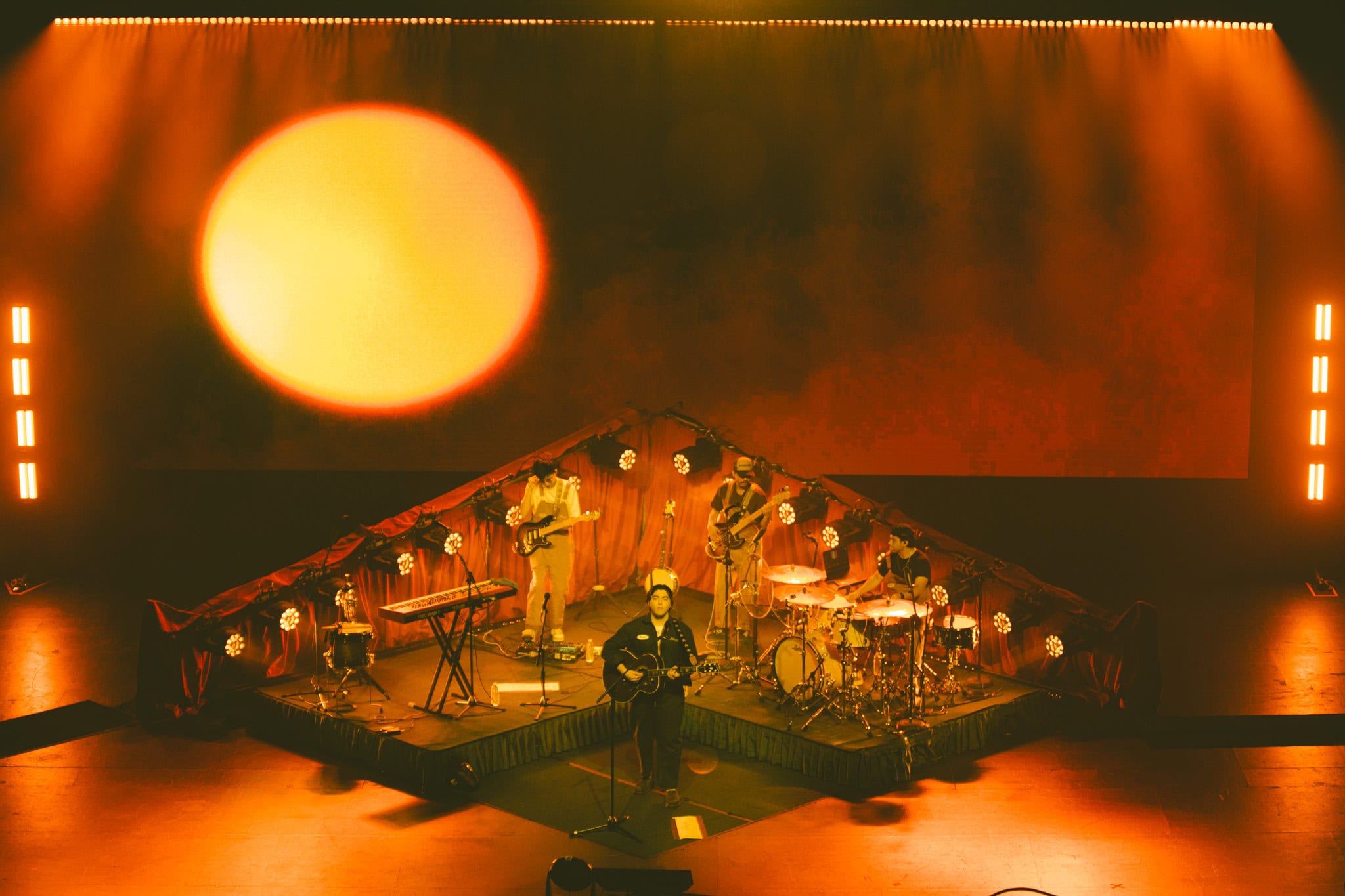
Andrea Bejar opened the night with a kind of stillness that immediately shifted the energy in the room. There was no dramatic entrance, no flashy build-up. Just her, a quiet confidence, and a voice that felt like it was letting you in on something private. From the first notes of “Tu Fantasma,” the Fox Theater began to feel less like a venue and more like a shared space for reflection.
Dressed in an all-white outfit with a long, flowing skirt, Andrea didn’t just stand and sing—she moved with her music. At times she twirled softly across the stage, arms loose, skirt sweeping around her like she was caught in the current of her own sound. Her dancing felt unchoreographed and instinctual, like she was letting each song guide her. It added a sense of lightness to even the heaviest moments, like watching grief and joy coexist in real time.
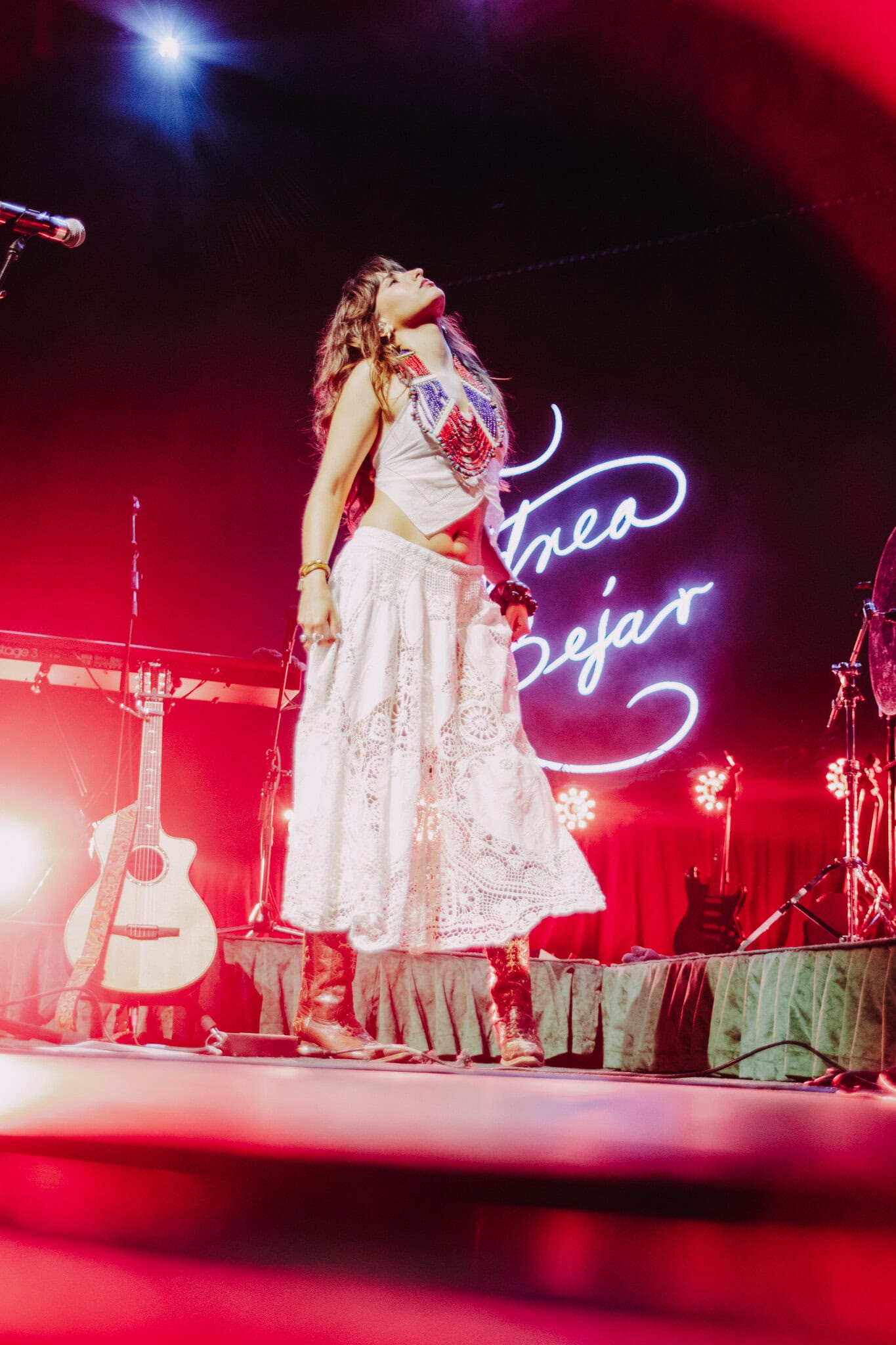
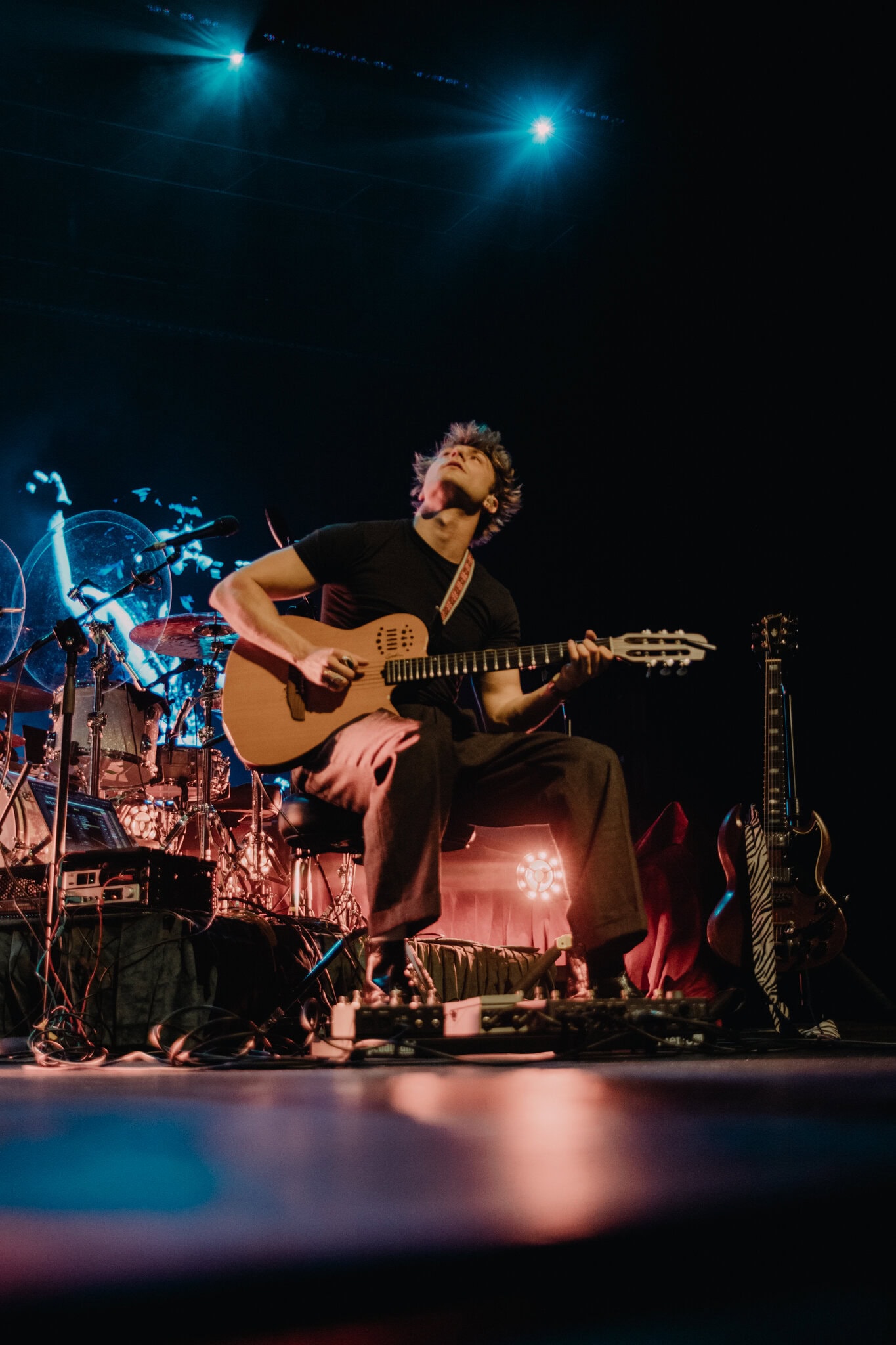
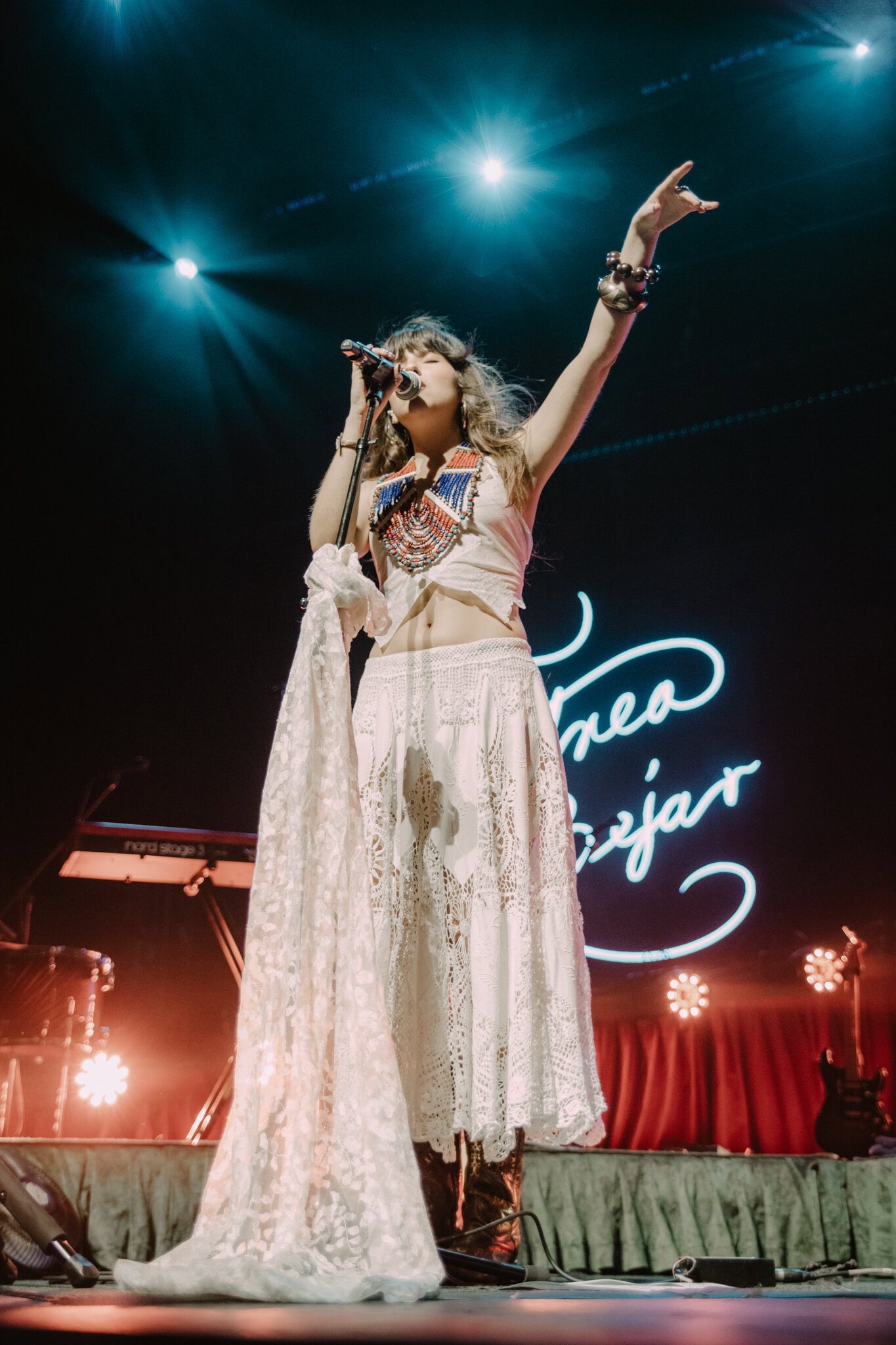
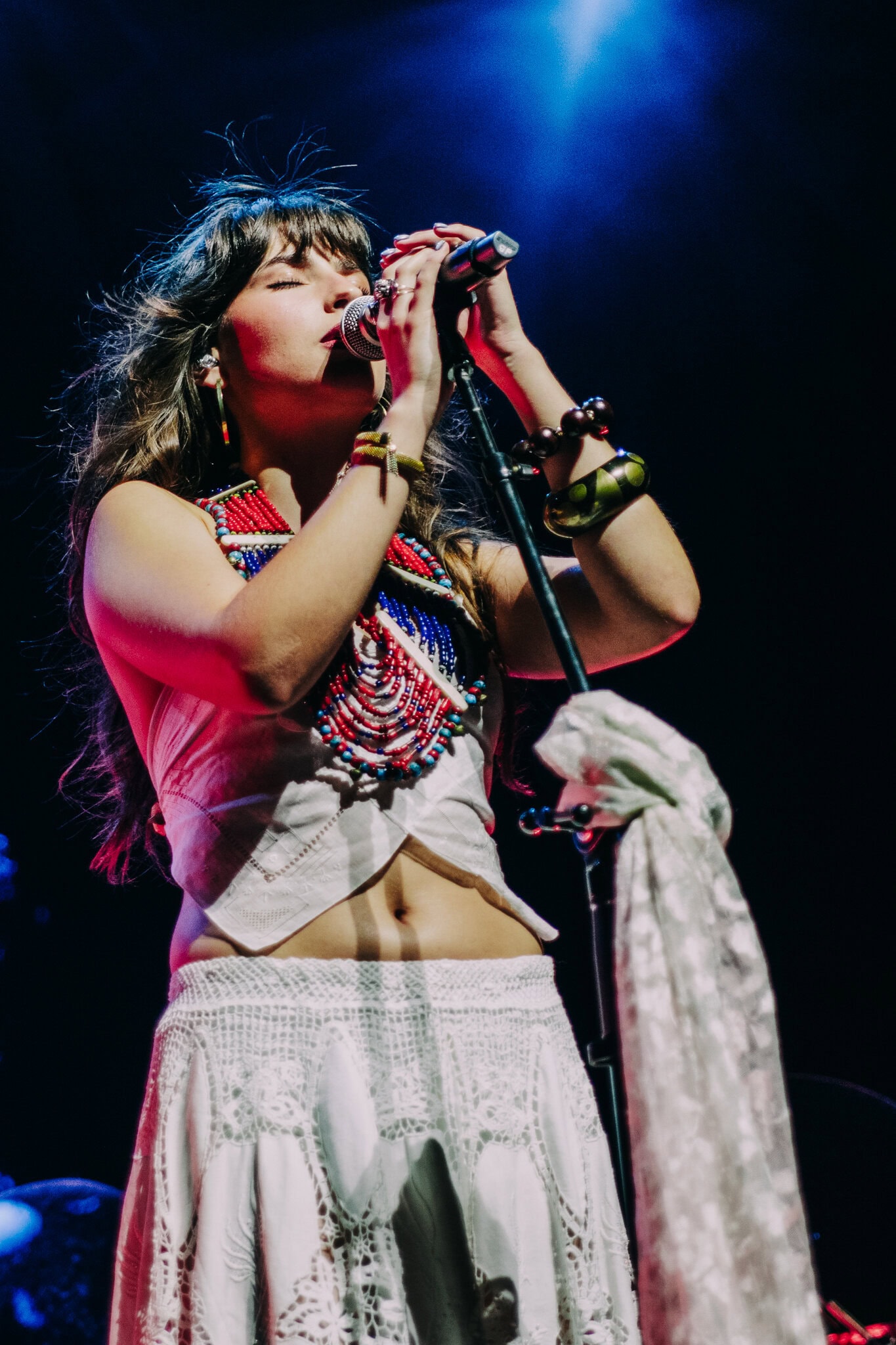
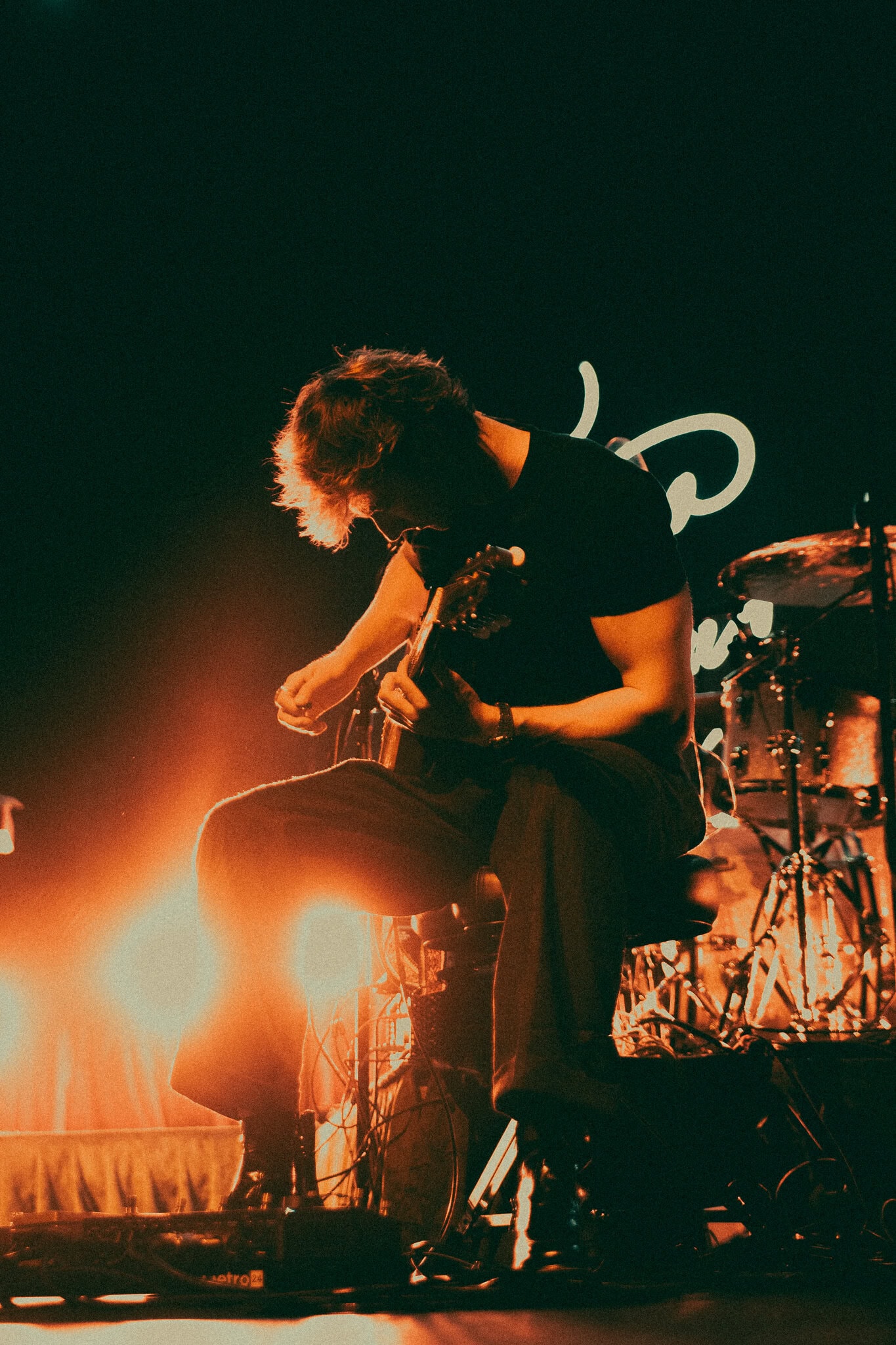
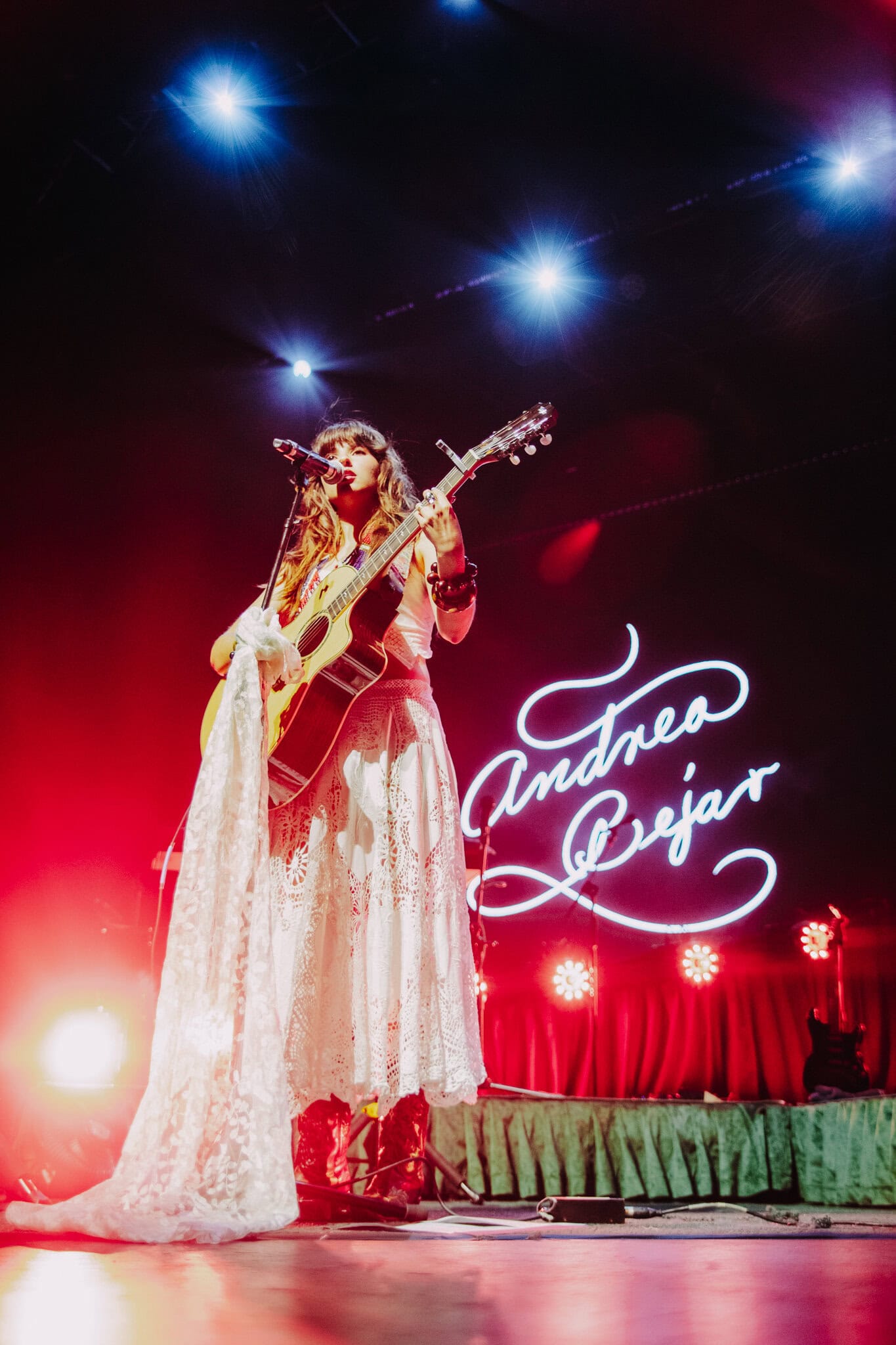
Her set moved gently but purposefully. “Blisters” and “Marigolds” carried a hushed melancholy, soft around the edges but full of weight. Andrea has a way of letting her songs unfold slowly, like she’s carefully unwrapping a memory in front of you. With “Despierto” and “Quien Tengo Que Ser,” she dug into questions of identity and self-worth without ever having to raise her voice. You just felt it.
When she moved into “Pececitos” and “Mexico,” the room had gone completely still. People weren’t just watching. They were absorbing. The mix of English and Spanish felt natural, like a reflection of the way she moves through the world, and gave the performance even more depth. “Sunlight” added a flicker of warmth, and by the time she reached “Mi Niña” and “Left of Me,” it was clear that Andrea had done more than open the show. She had opened the night emotionally.
She didn’t have to demand the crowd’s attention. She earned it. Her set was quiet, but not timid. In a night that would later swell with heartbreak and catharsis, Andrea began it with something just as powerful—a gentle invitation to feel. And from the looks of the crowd, we all took it.
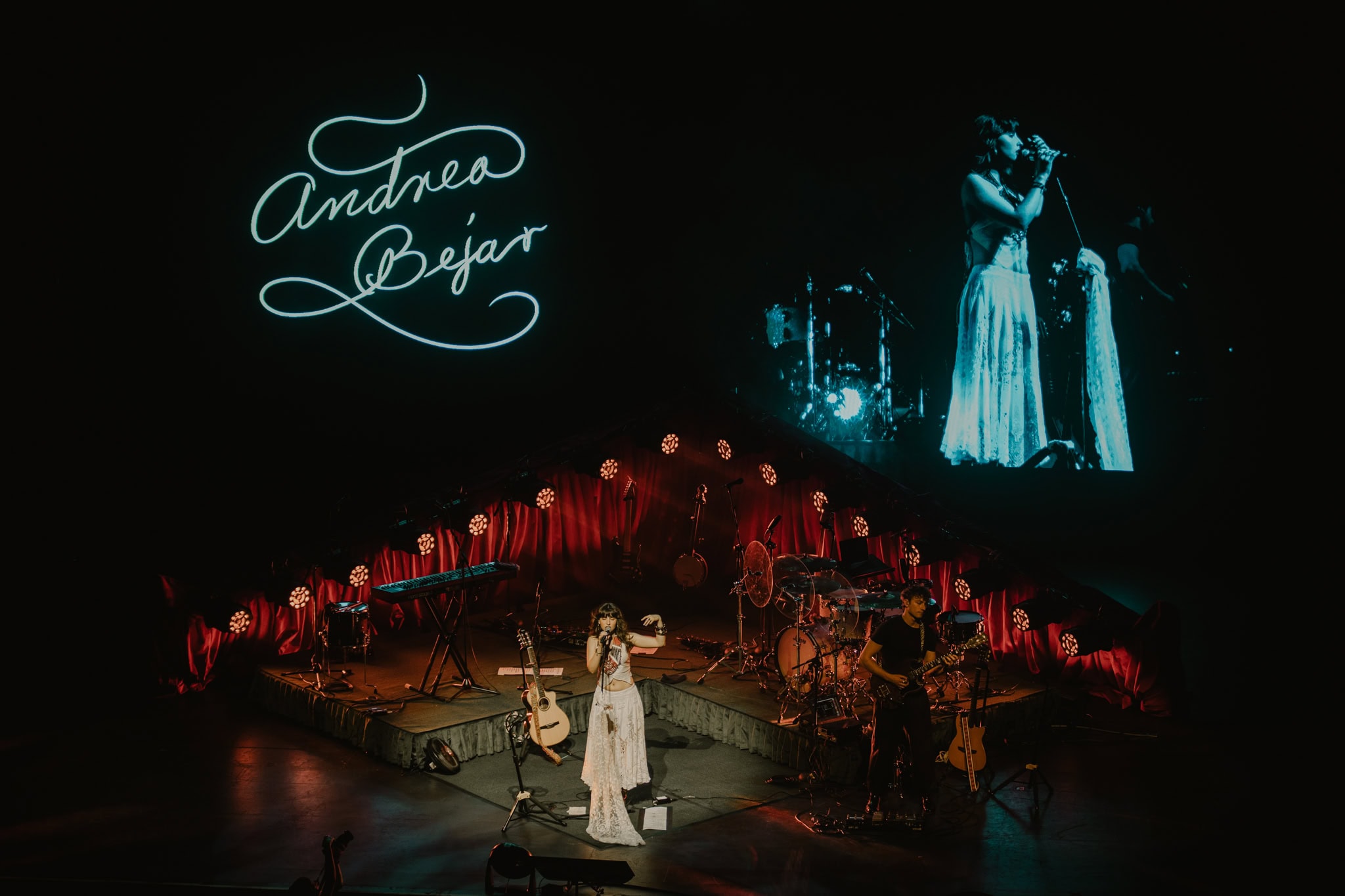
When Kevin Kaarl finally stepped onto the stage, he didn’t break the stillness that Andrea had so carefully created. He leaned into it. Dressed in a navy-blue jumpsuit with stitched patches on the chest, he looked more like someone about to tune up your car than headline a sold-out theater. But just a few songs in, he paused, smiled at the crowd, and said, “Vengo vestido de mecánico, pero no para arreglar carros… sino corazones rotos.” The audience laughed and clapped, and just like that, he had us. Not with spectacle, but with warmth.
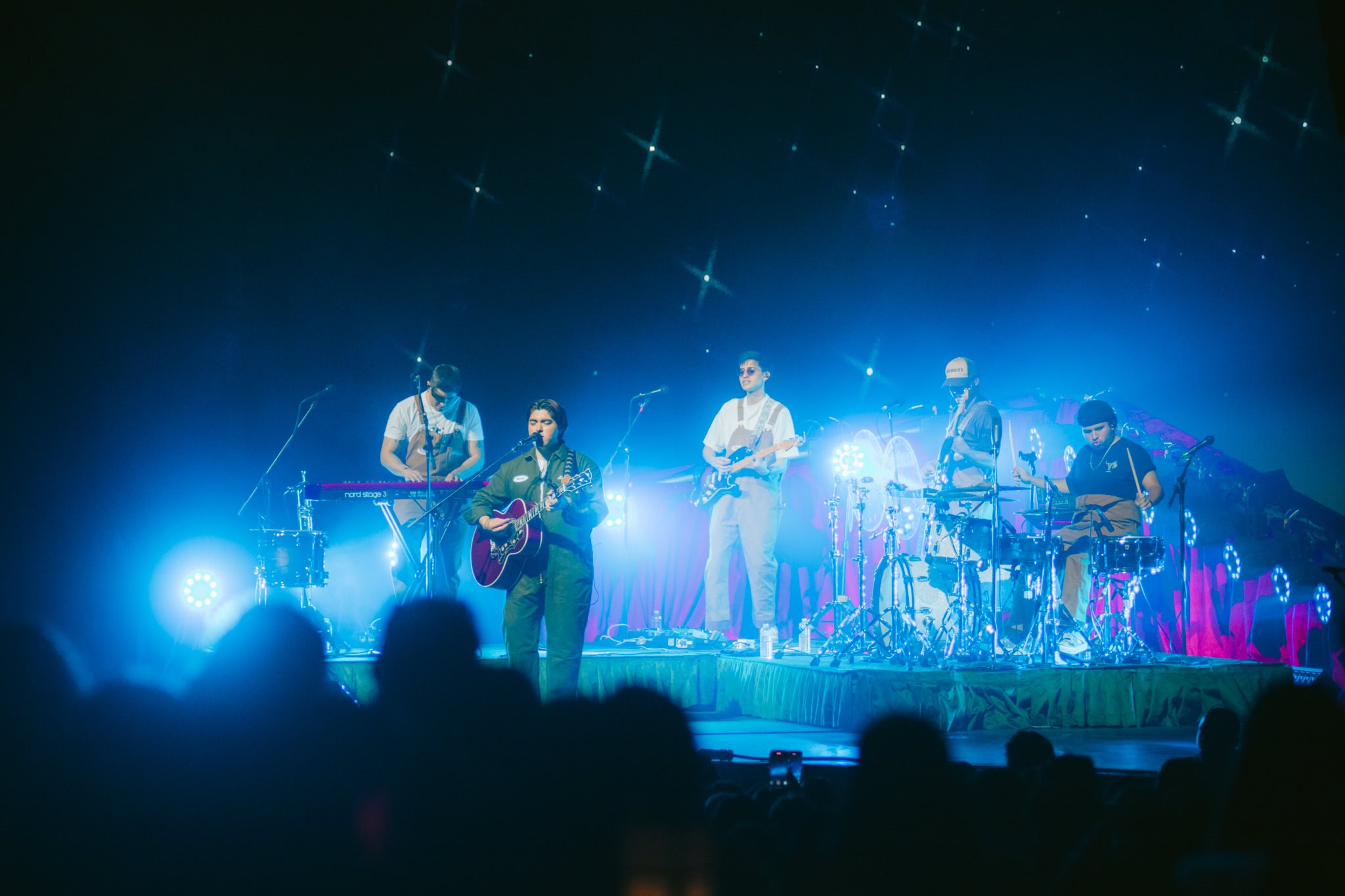
What followed was a sweeping, 23-song set that moved like a long letter you find tucked in a drawer years after it was written. He opened with “Búscame otra vez” and from that moment on, it was clear we weren’t just hearing songs. We were being invited into something quieter and deeper.
The set list wasn’t structured around big moments. It unfolded gradually. “Abrazado a ti” and “Como me encanta” felt like warm sun through a window, while “Colapso,” “Ya no me llames,” and “Me va a costar” pulled us down into something more fragile. And when “Vámonos a Marte” came in like a soft swell, the entire theater moved with him. People sang, but gently, like they knew the song meant something different to everyone in the room.
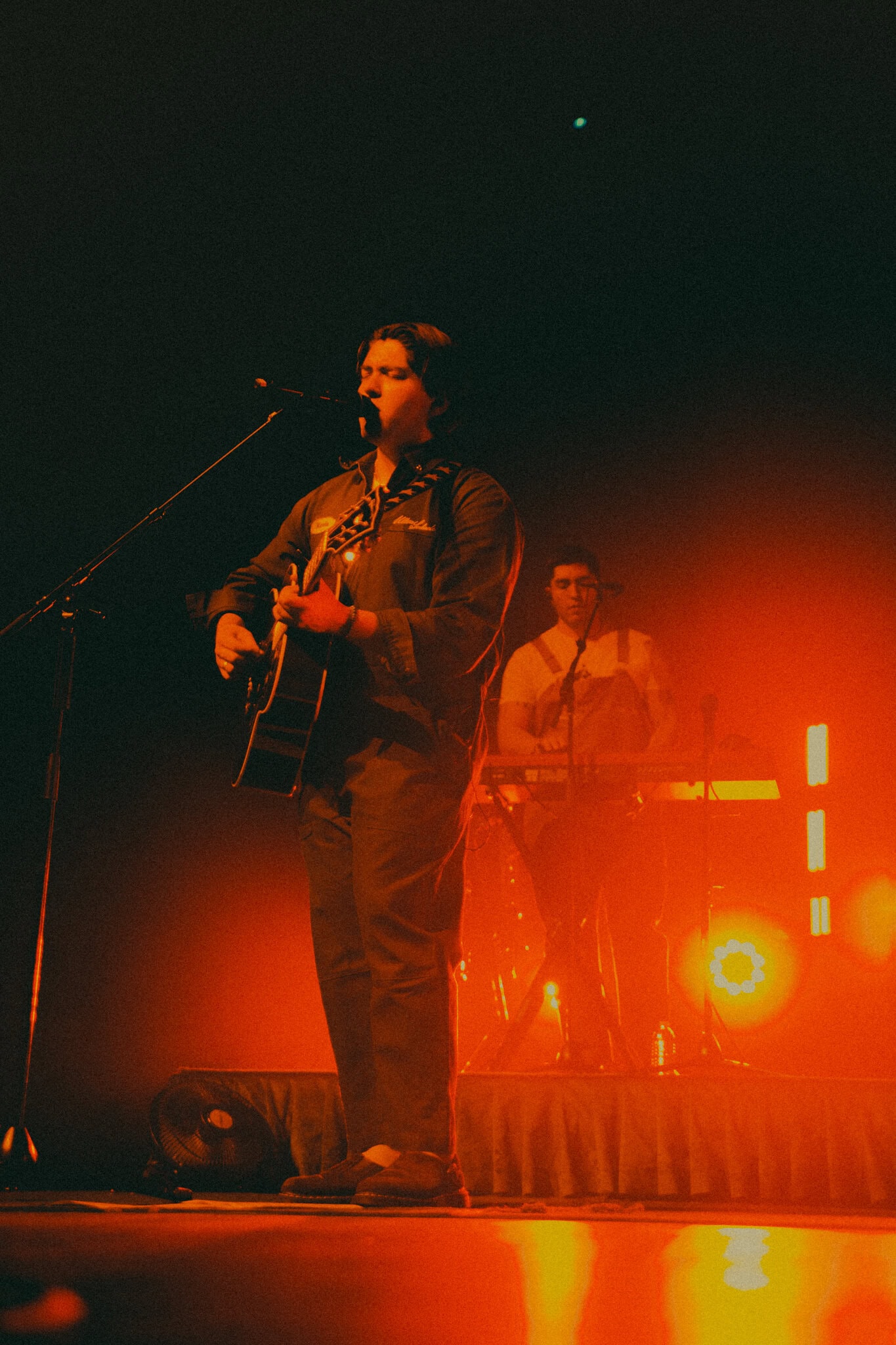
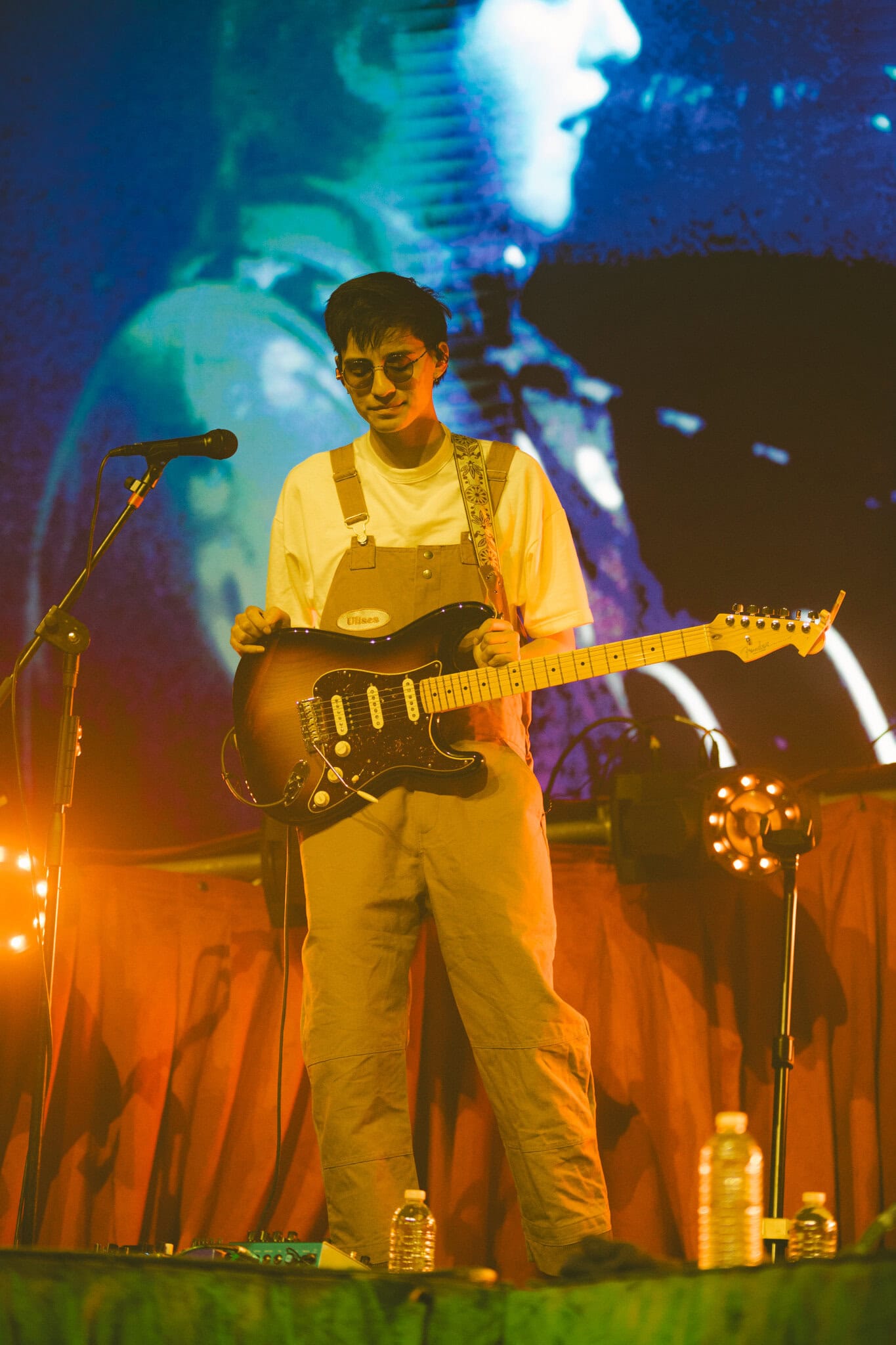
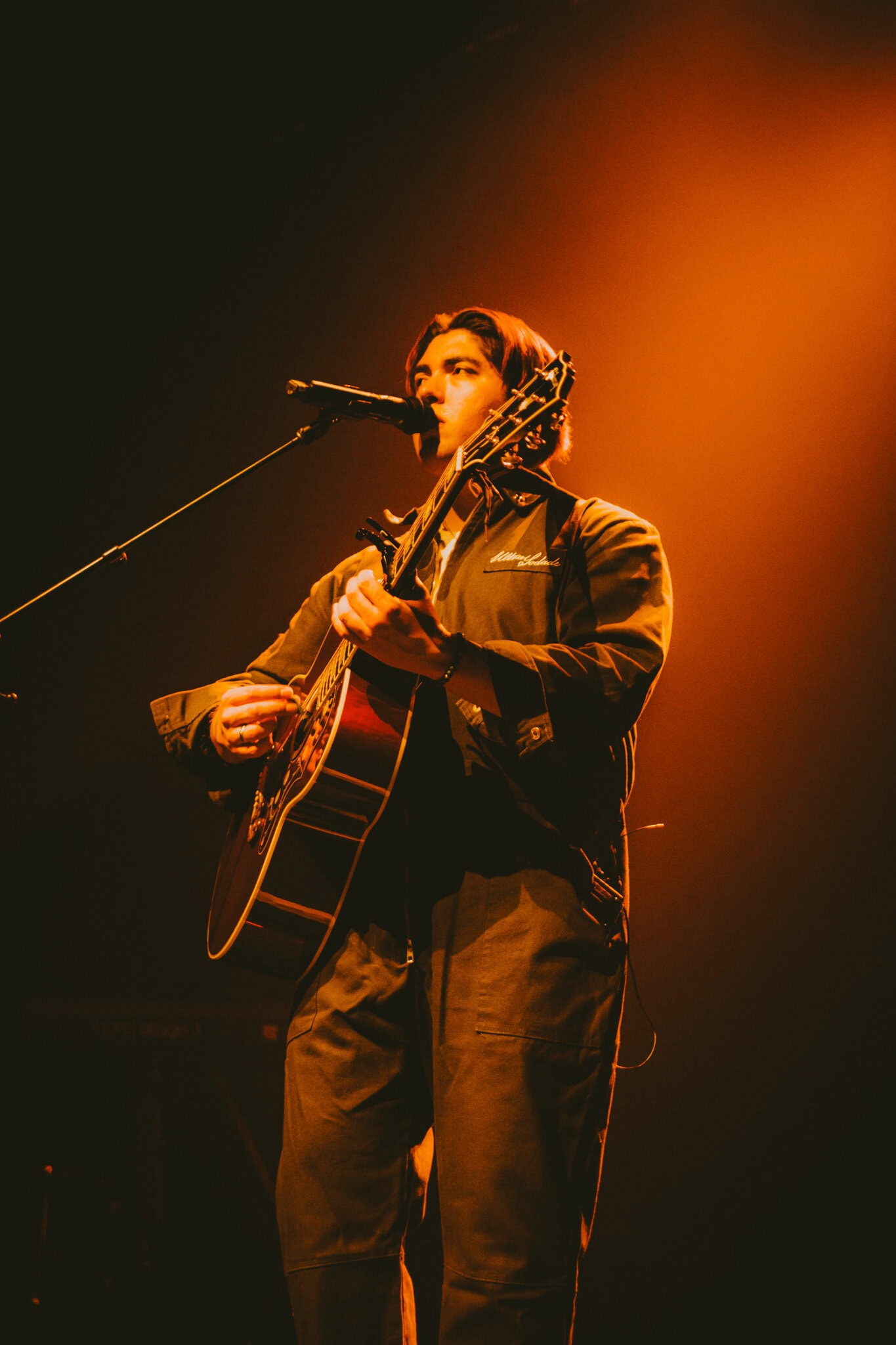
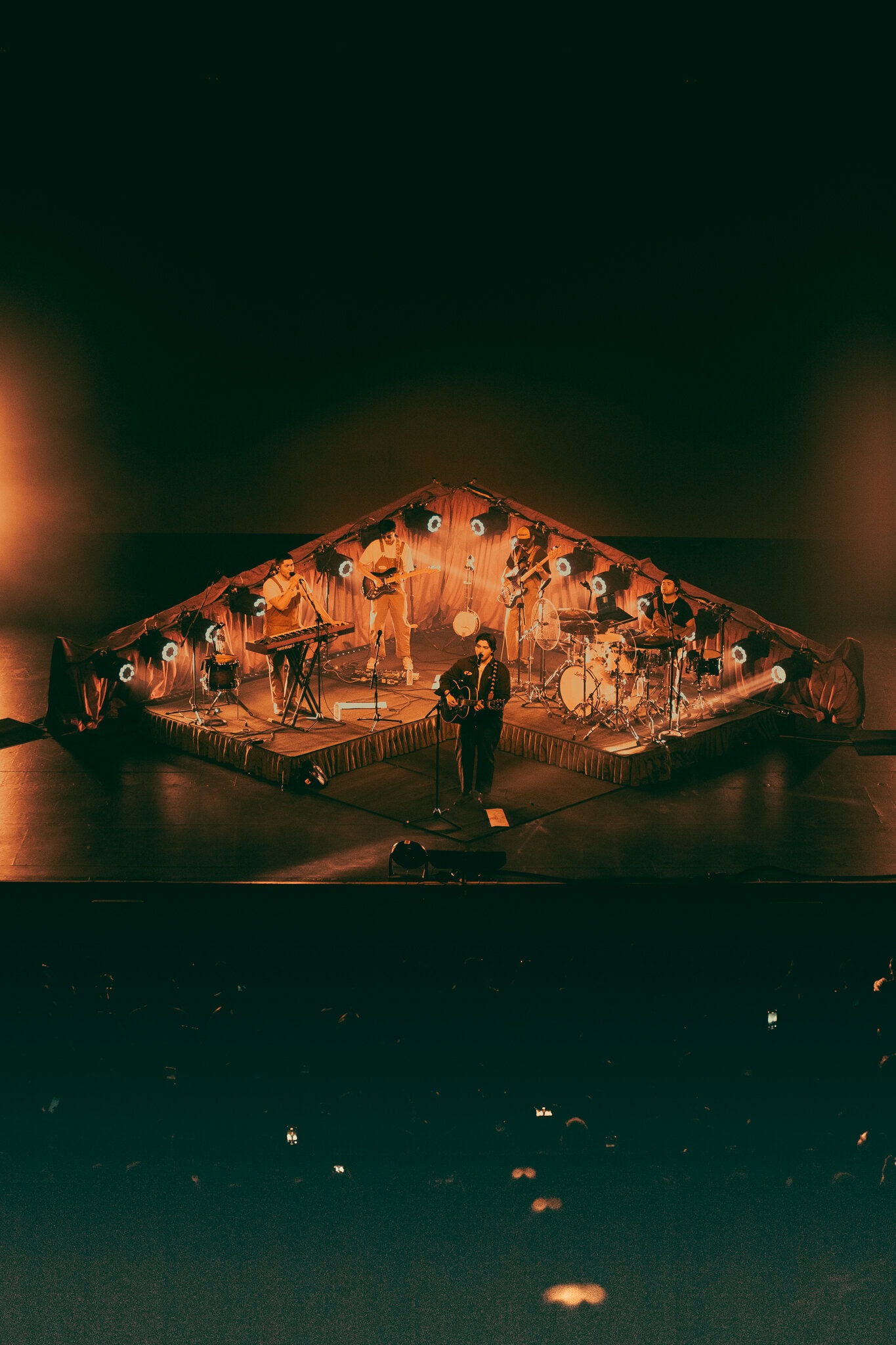
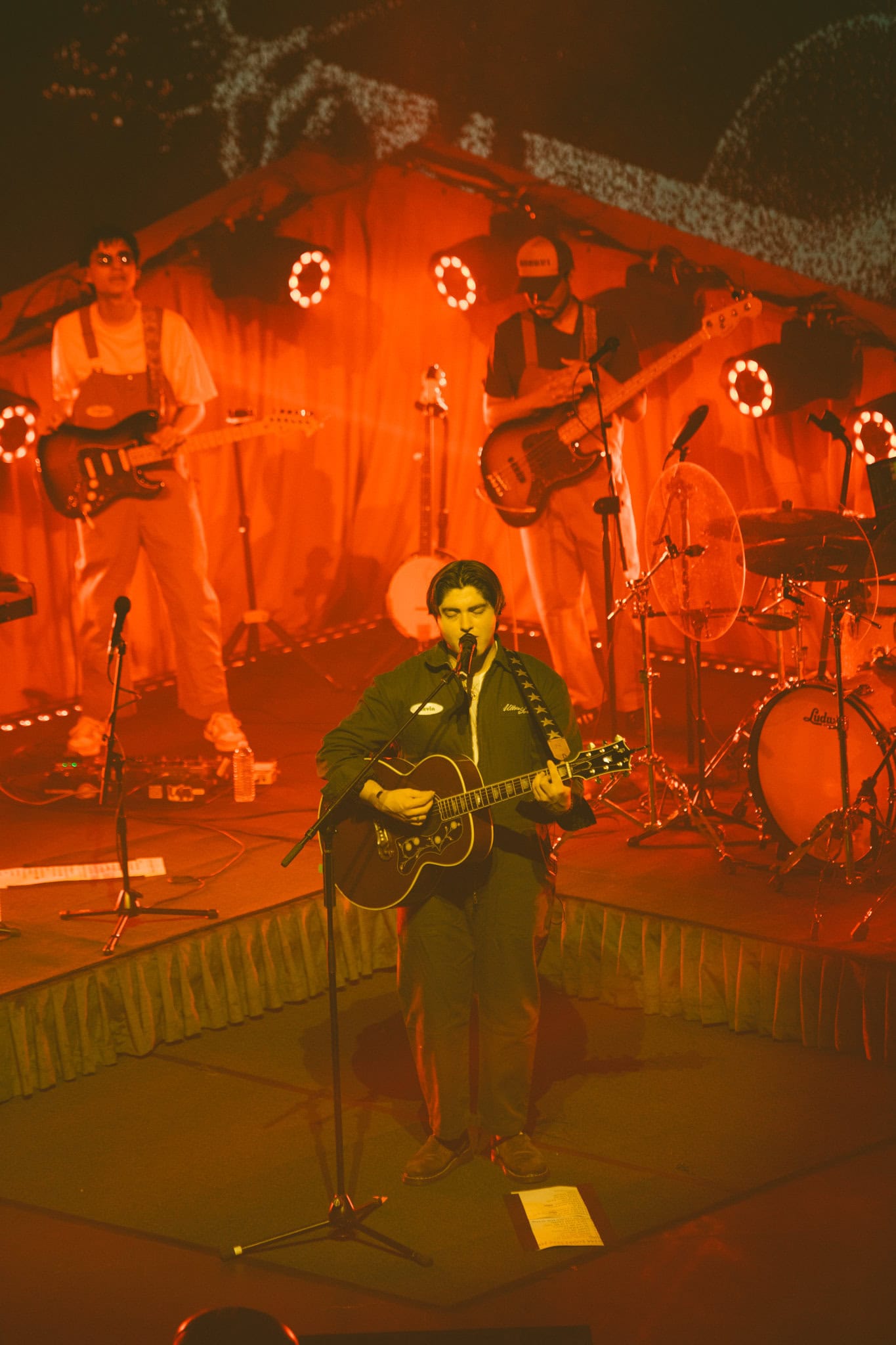
There was nothing performative about Kevin’s presence. He didn’t try to fill the space with sound. He let his songs sit. He let silence exist between them. And somehow that made the entire night feel more alive.
Somewhere during the set, I stopped trying to analyze the moment and just let myself feel it. Maybe it was during “Es que yo te quiero a ti” or “Te Quiero Tanto Tanto.” The lyrics sank in, not all at once, but slowly, in that way music sometimes does when you’re ready for it. I remember looking around and seeing other people just as still as I was. Some swaying, some mouthing the words, some just standing there quiet, like something inside them was being carefully held. It wasn’t dramatic. It was human.
There’s a kind of relief in realizing you’re not the only one carrying a particular kind of ache. That’s what Kevin’s music gave us. Not a solution, but a soft place to land. By the time he reached “San Lucas,” the final song of the night, it felt like something in the room had shifted. Not in a big way, but in the way that matters. We had been seen. We had been softened. And we had been given the time and space to feel it.
Kevin didn’t leave the stage like a headliner. He left like someone who had finished what he came to do. A mechanic, maybe. Not for cars, but for something much quieter and much more personal.
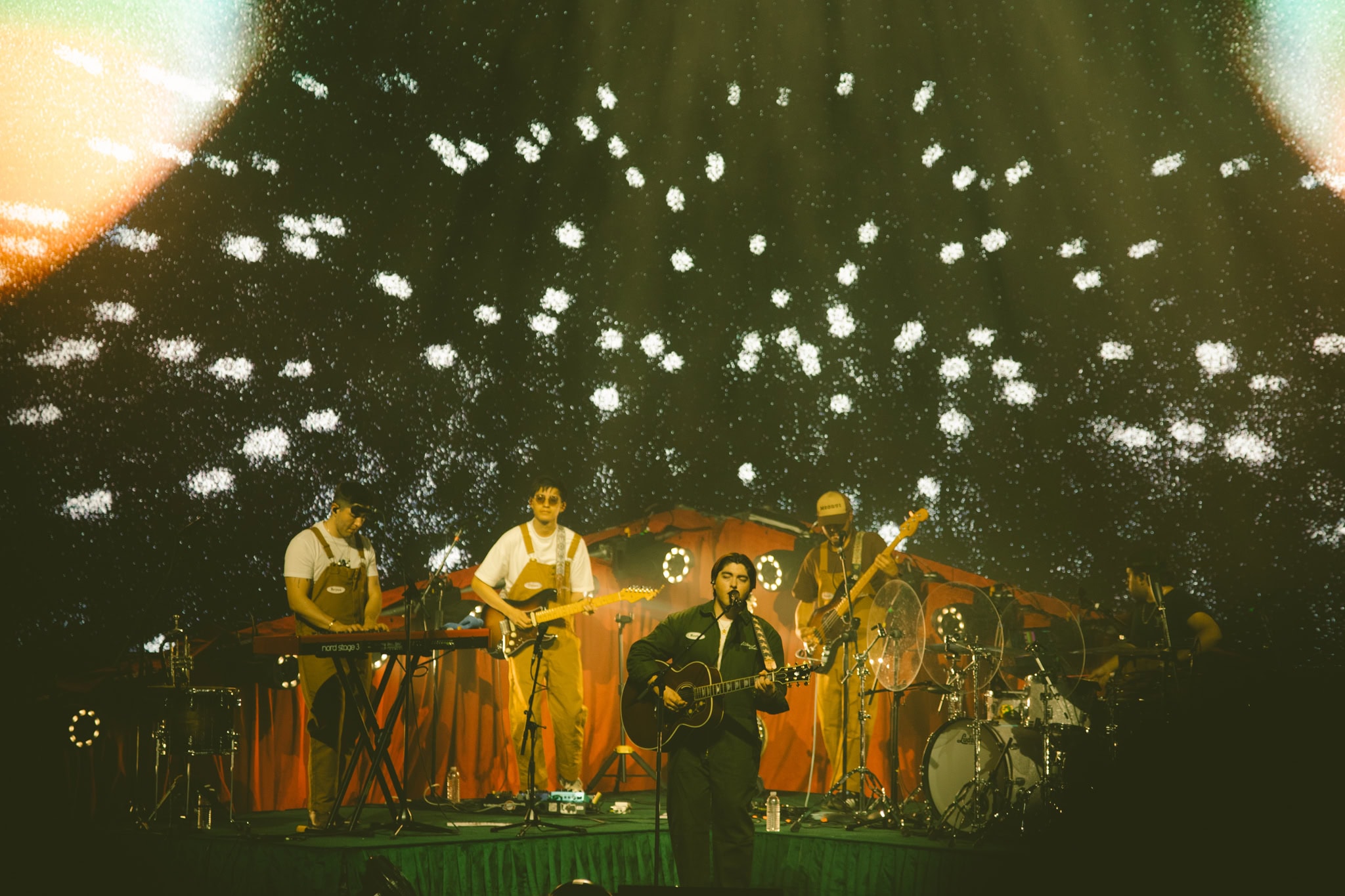

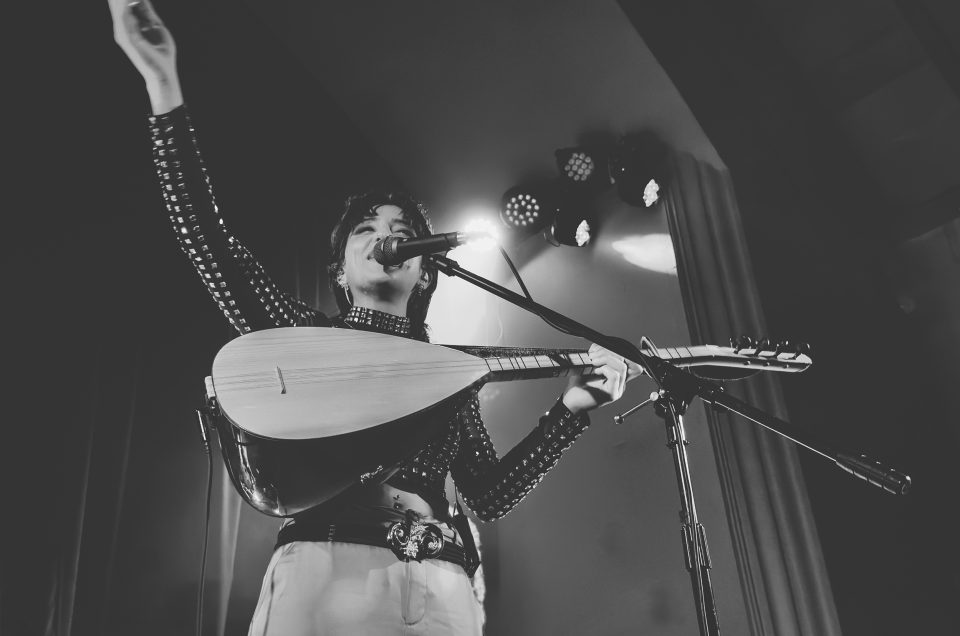
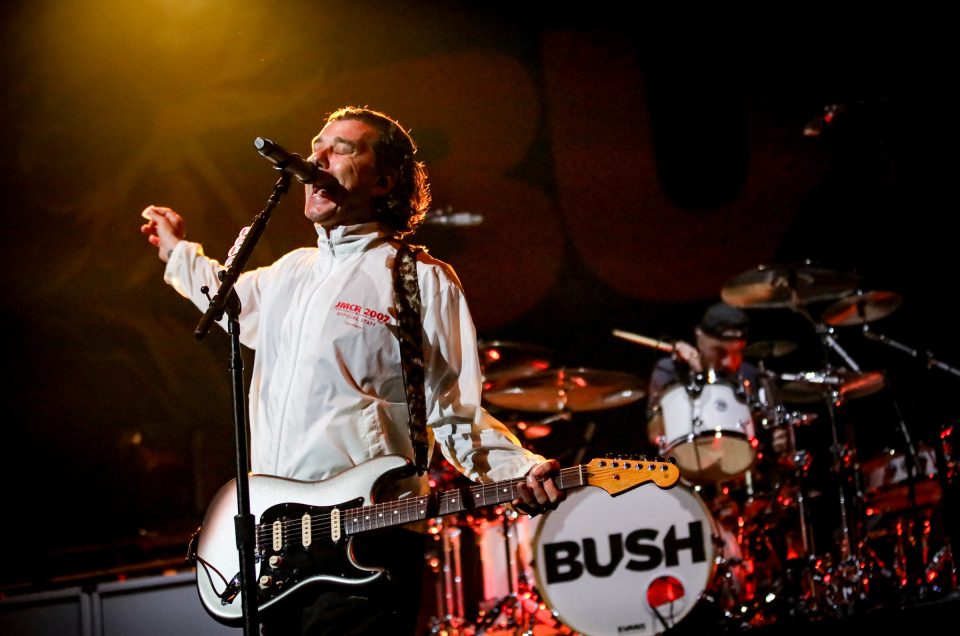
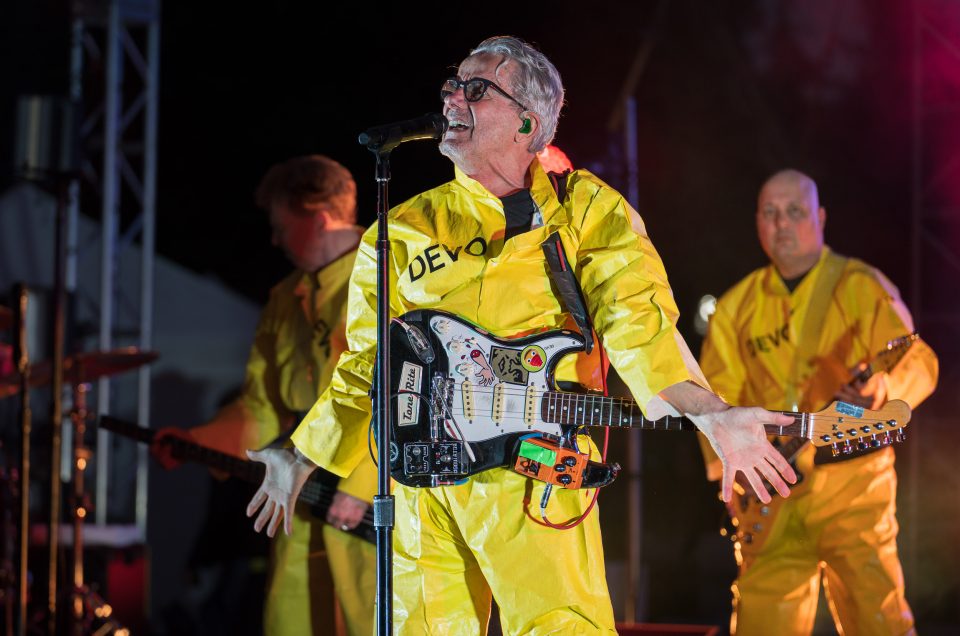
Leave a reply